Concerned about getting support
Ms. ND, Hanoi, has a child who has just been admitted to the Semiconductor Technology major at Vietnam-Japan University (Vietnam National University, Hanoi). Ms. D. said that before registering for admission, her family had researched the school's website and learned that the Semiconductor Technology major was included in the Government's Decision 1017.
Accordingly, the conditions for registering for this major are a high school math score of 6.25/10 points; high school graduation exam scores for the following combinations: A00 from 21.35/30 points; A01 from 20.10/30 points; C01 from 21.85/30 points; D07 from 19.50/30 points. Ms. D affirmed that her child met all the necessary conditions (floor score) and sufficient conditions (standard score) to study this major. However, up to now, the family has not received specific information.
“I talked to the school's admissions department and received an unreasonable explanation (for example, the information according to Decision 1017 has only been released and not yet approved...). But I found out that this decision was issued in September 2024. Secondly, if it has not been approved, why does the school's website clearly inform that candidates meet the conditions and have scores for each subject like that?”, Ms. D said.
Some parents whose children were admitted to the semiconductor training program of schools registered to implement Decision 1017 have the same question because they have not received any specific information from the school.
Mr. Nguyen Hoang Oanh, Vice Principal of Vietnam - Japan University informed that he is waiting for instructions from the Ministry of Education and Training . The school has registered to implement Decision 1017 for the semiconductor chip engineering technology major. Associate Professor, Dr. Nguyen Phong Dien, Vice Director of Hanoi University of Science and Technology, said that this university has been training in semiconductor chip majors for a long time. Hanoi University of Science and Technology registered two majors, microelectronics engineering and nanotechnology, according to Decision 1017. The school is also waiting for instructions.
According to the reporter's investigation, up to now, the whole country has 26 university educational institutions registered to implement Decision 1017 such as Hanoi University of Science and Technology, Quy Nhon University, University of Electricity, University of Transport, Ho Chi Minh City University of Technical Education, some member schools of the 2 National Universities, Hue University, Da Nang University, Thai Nguyen University...
Speaking to reporters, a representative of the Ministry of Education and Training said that they are presiding over the development of a decree on scholarships for students in the fields of basic science, key engineering and strategic technology, including industries serving the semiconductor sector.
In the 2024-2025 school year, the country will have about 19,000 students enrolled in majors relevant to the semiconductor field, accounting for about 10% of the total number of students studying STEM (science, technology, engineering and mathematics).
There are currently 166 training institutions for semiconductor-related majors, of which 97 directly train these majors. Last May, the Ministry of Education and Training issued a decision on training program standards for undergraduate and master degrees in semiconductor microchips, and more than 30 training programs registered to implement under Decision 1017.
Preferential loan policy
The Government has just issued Decision 29 on special preferential credit for students and postgraduates in STEM fields.
This policy is implemented through the Social Policy Bank. The conditions that must be met for the Social Policy Bank to consider and approve loans include: students must have graduated from high school according to regulations. In particular, first-year students must have all three years of high school assessed as having good academic results or above; or have an average grade of 8 points or above in the 12th grade in math, physics, chemistry, and biology.
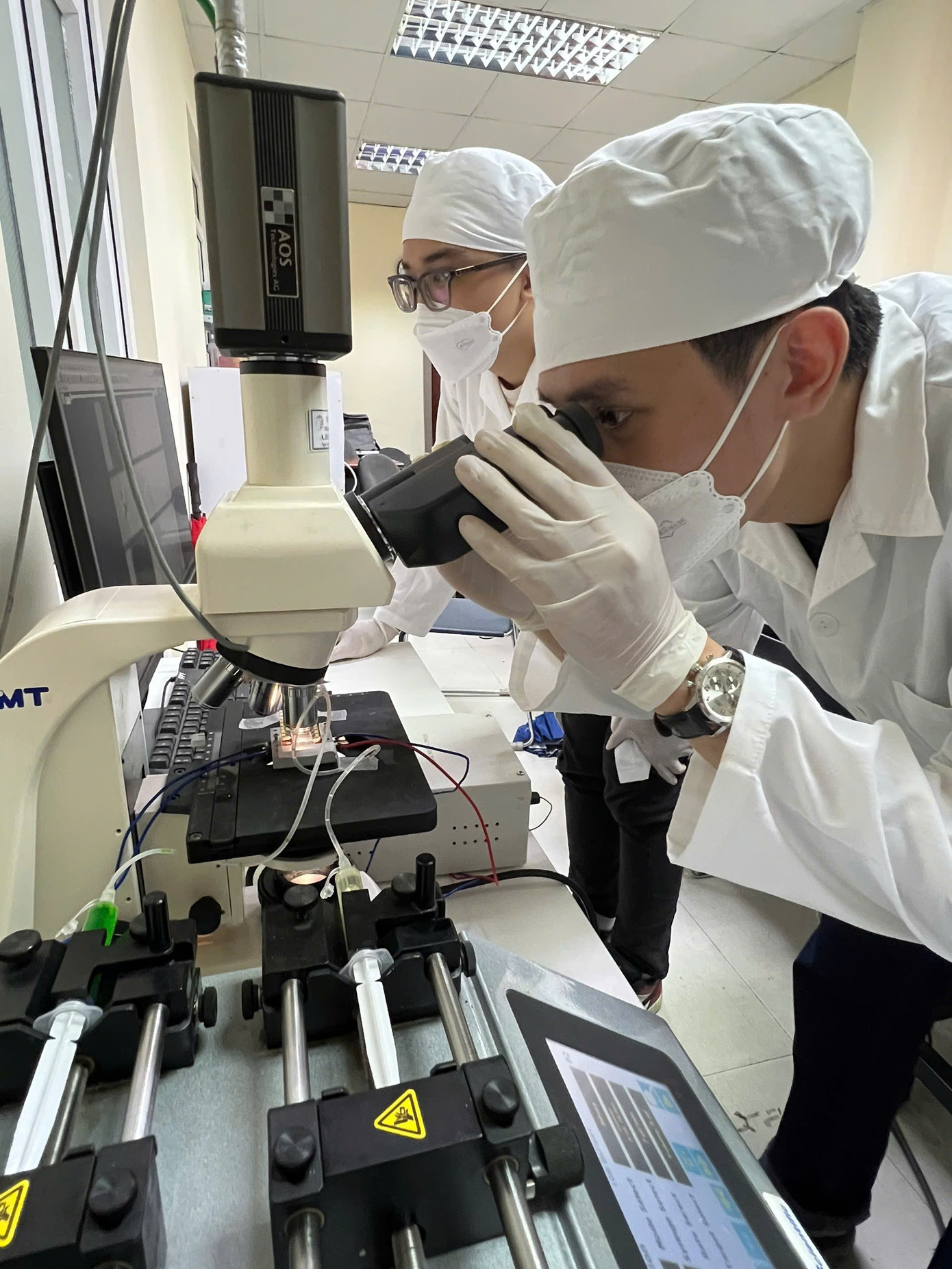
Students from the second year onwards must have an average academic result of good or better in the previous academic year adjacent to the year of requesting the Social Policy Bank for loan. For master's and doctoral students, the conditions are simpler and only need to be recognized by the university.
The loan amount includes two main components: the total tuition fee payable by the student and living expenses and study costs. Tuition fees are calculated after deducting scholarships and other financial support from the school (if any) according to official confirmation from the training institution.
Living expenses and other study expenses with a maximum support level of 5 million VND/month. For example, if a student's tuition fee is 10 million VND/month, the student will be able to borrow up to 15 million VND/month (including 10 million VND/month for tuition and 5 million VND/month for living expenses and other study expenses). The preferential loan interest rate is 4.8%/year.
Decision 1017 of the Government sets the target to strive for by 2030: Training at least 50,000 human resources with university degrees or higher to serve the semiconductor industry, of which, training at least 42,000 engineers and bachelors; having at least 7,500 master's students and 500 doctoral students; training at least 15,000 human resources in the design stage, at least 35,000 human resources in the production, packaging, testing and other stages of the semiconductor industry; training at least 5,000 human resources with in-depth expertise in artificial intelligence to serve the semiconductor industry.
The grace period is from the date the learner finishes the course as prescribed, the borrower is entitled to enjoy within 12 months before having to pay the first principal and interest of the loan.
The maximum repayment period is equal to the loan disbursement period. For example, a course lasts 5 years (disbursement period is 5 years), the total loan term can be up to 11 years (5 years disbursement + 1 year grace period + 5 years repayment).
Thus, there is currently a policy to support loans for those studying STEM fields (including high-tech fields such as semiconductors). This loan amount is flexibly applied according to the maximum tuition fee of each school plus living expenses.
In the near future, when there are guidelines on scholarships, students studying chip-semiconductor will be able to have support to study with peace of mind. It is known that the scholarship level for this group of majors can be up to 4 million VND/month.
Source: https://tienphong.vn/sinh-vien-nganh-ban-dan-ngong-chinh-sach-ho-tro-post1784554.tpo







![[Photo] Prime Minister Pham Minh Chinh chairs the 16th meeting of the National Steering Committee on combating illegal fishing.](https://vphoto.vietnam.vn/thumb/1200x675/vietnam/resource/IMAGE/2025/10/07/1759848378556_dsc-9253-jpg.webp)
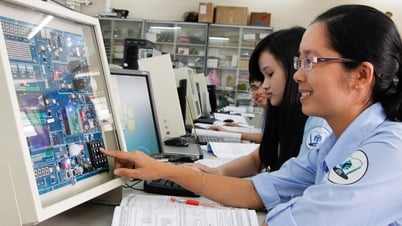

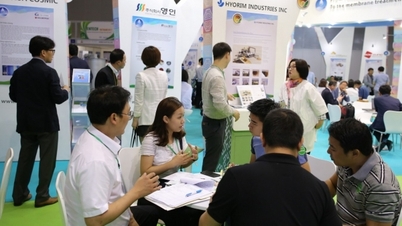

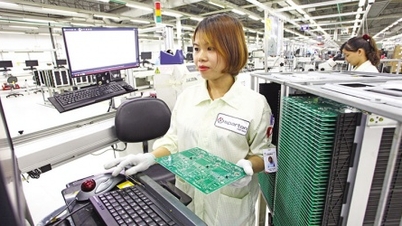

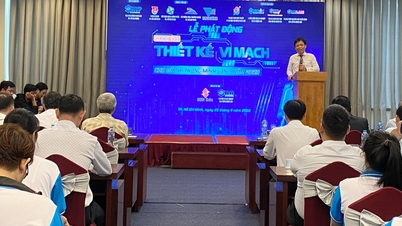

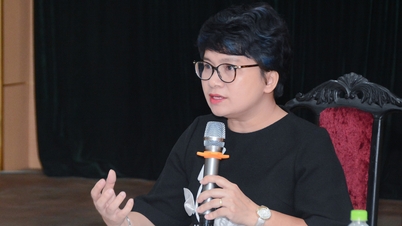


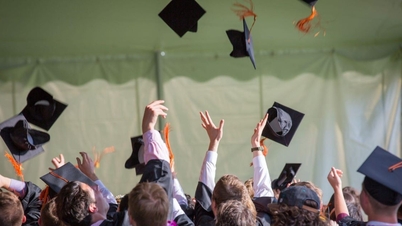

















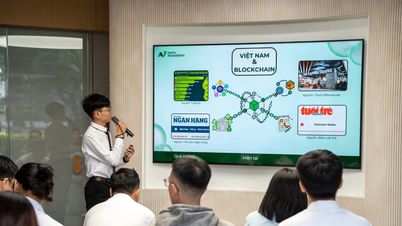























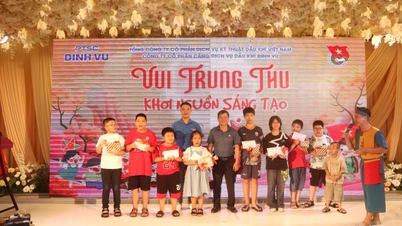





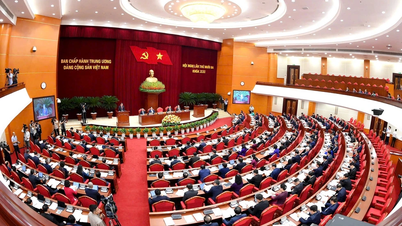

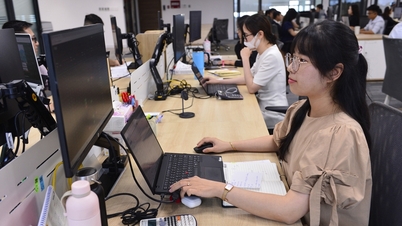







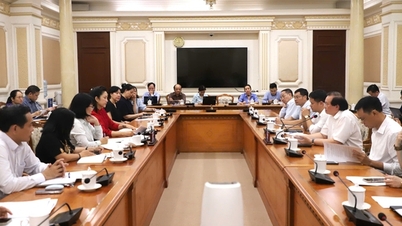










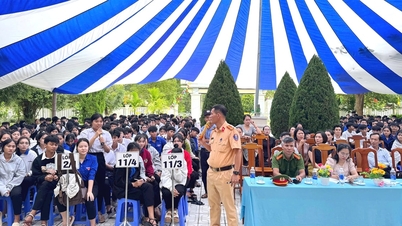
















Comment (0)